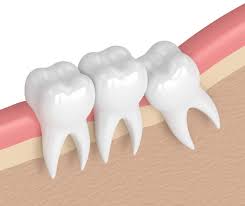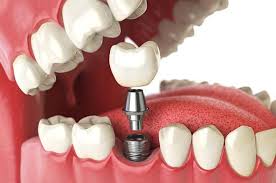Tooth removal is a routine dental procedure performed when a tooth is damaged, decayed, or causing alignment issues. This procedure involves removing a tooth from its socket in the bone. Dentists may recommend it when preserving the tooth is no longer a viable option. The procedure itself varies based on the condition of the tooth and the surrounding tissues.lets delve into Tooth extraction cost
When Tooth Removal Becomes Necessary
Tooth removal becomes essential in cases where a tooth is severely decayed or fractured beyond repair. Sometimes, it is performed to prevent overcrowding, especially before orthodontic treatments. Other reasons include infection risks or wisdom teeth that fail to emerge properly. Each case is evaluated individually by dental professionals, and decisions are based on oral health priorities.
Types of Tooth Removal Procedures
Tooth removal procedures can be categorized into simple and surgical types. A simple procedure is performed on visible teeth that can be loosened and removed using basic instruments. Surgical procedures are more complex, usually required for impacted or broken teeth beneath the gum line. These procedures are carried out with precision and care by trained dental practitioners.

Preparing for a Tooth Removal Appointment
Before undergoing the procedure, a thorough oral examination is performed. This includes reviewing dental history and taking diagnostic images. The goal is to understand the condition of the tooth and surrounding structures. Preparation ensures that the removal is safe and minimally invasive. The dental team provides instructions that patients must follow before the appointment.
The Role of Imaging in Tooth Removal
Imaging plays a crucial role in assessing the position, structure, and health of a tooth and its roots. Digital scans help in planning the most effective approach for removal. They reveal important details such as the proximity of nerves, sinus cavities, and bone density. Accurate imaging allows dental teams to avoid complications during the process.
Tooth Removal and Oral Hygiene
Maintaining oral hygiene is critical before and after tooth removal. Healthy gums and teeth contribute to a smoother experience. Brushing and flossing regularly and attending dental checkups help reduce the risk of infection. A clean oral environment supports faster healing and fewer complications after the procedure.
The Experience During the Procedure
The procedure begins with numbing the area around the affected tooth. This ensures the patient feels comfortable throughout the process. For more complex cases, sedation methods may be used to keep patients calm and relaxed. The tooth is carefully loosened and extracted using specialized tools, and the site is cleaned to support natural healing.
Importance of Following Instructions
Following the instructions provided by dental teams helps ensure successful outcomes. Pre-procedure guidelines often include avoiding certain foods or beverages and informing professionals about medical conditions. Clear communication and cooperation are essential for a smooth and safe procedure.
Managing Anxiety Related to Dental Procedures
Feeling nervous before a tooth removal procedure is normal. Understanding what to expect can help reduce anxiety. Many individuals find it helpful to discuss their concerns with dental professionals. Relaxation techniques and clear information about the steps involved can make the experience more manageable and less intimidating.
Healing and Recovery Overview
The healing process varies based on the complexity of the procedure and individual health factors. Most people recover within a few days, while others may take longer. Rest and proper care of the affected area promote natural healing. Avoiding disturbances in the area helps the body form a protective clot that aids in recovery.
Role of Nutrition During Healing
Nutrition plays a vital role in the healing process after a tooth has been removed. Consuming soft, nutritious foods and staying hydrated supports tissue repair. Certain nutrients, such as vitamins and minerals, aid in strengthening gums and bones. Eating well-balanced meals can positively impact recovery time.
Impact on Daily Routine
Life may feel different for a short period following a tooth removal procedure. Activities like speaking and eating may require some adjustment. Most individuals adapt quickly and return to their normal routine within a few days. Being mindful of oral hygiene and following care advice helps smoothen the transition.
Maintaining Balance in Oral Health
Even after the removal of a tooth, maintaining balance in oral health remains important. Regular checkups and cleanings contribute to long-term wellness. Paying attention to changes in the mouth and seeking professional guidance ensures that future dental needs are addressed promptly and effectively.
Emotional Well-being and Confidence
The thought of losing a tooth can affect emotional well-being. However, understanding the purpose behind the procedure often brings relief. Removing a problematic tooth can eliminate discomfort and restore comfort. Many individuals report improved confidence once healing is complete and the discomfort has subsided.
Long-Term Outlook After Tooth Removal
The long-term outlook after a tooth is removed depends on oral hygiene and care practices. The surrounding teeth adjust naturally over time. Dental professionals may suggest future solutions for replacing the missing tooth. With proper care, overall oral health remains stable and strong.
Replacing the Missing Tooth
While not all removed teeth need replacement, certain situations may benefit from restoring the missing tooth. Replacement options vary and are discussed with patients based on their needs. Solutions are tailored to provide both function and appearance, enhancing the ability to chew and smile confidently.
Preventing the Need for Future Removals
Preventing the need for future tooth removals involves good dental habits. Brushing twice a day, flossing regularly, and visiting dental professionals for checkups are key practices. Being proactive with oral care helps prevent conditions that may lead to tooth damage or decay.
Recognizing Early Warning Signs
Being aware of signs that suggest dental problems is essential. These signs include prolonged sensitivity, discomfort while chewing, or swelling in the gums. Addressing these symptoms early can prevent the progression of dental issues. Early treatment may save the tooth and avoid the need for removal.
Promoting Lifelong Dental Health
Good dental health habits established early in life benefit long-term oral wellness. Encouraging proper brushing techniques and regular checkups from a young age builds a strong foundation. Continued focus on oral hygiene helps reduce the risk of serious dental issues in the future.
Summary
Tooth extraction cost in Dubai is a common dental procedure that supports overall oral health when a tooth cannot be preserved. Understanding the steps involved, preparing properly, and maintaining good hygiene habits all contribute to a smooth and successful experience. While it may feel like a major step, it often brings relief from discomfort and helps protect the health of surrounding teeth and gums. With time and proper care, individuals can recover well and continue enjoying a healthy smile.
